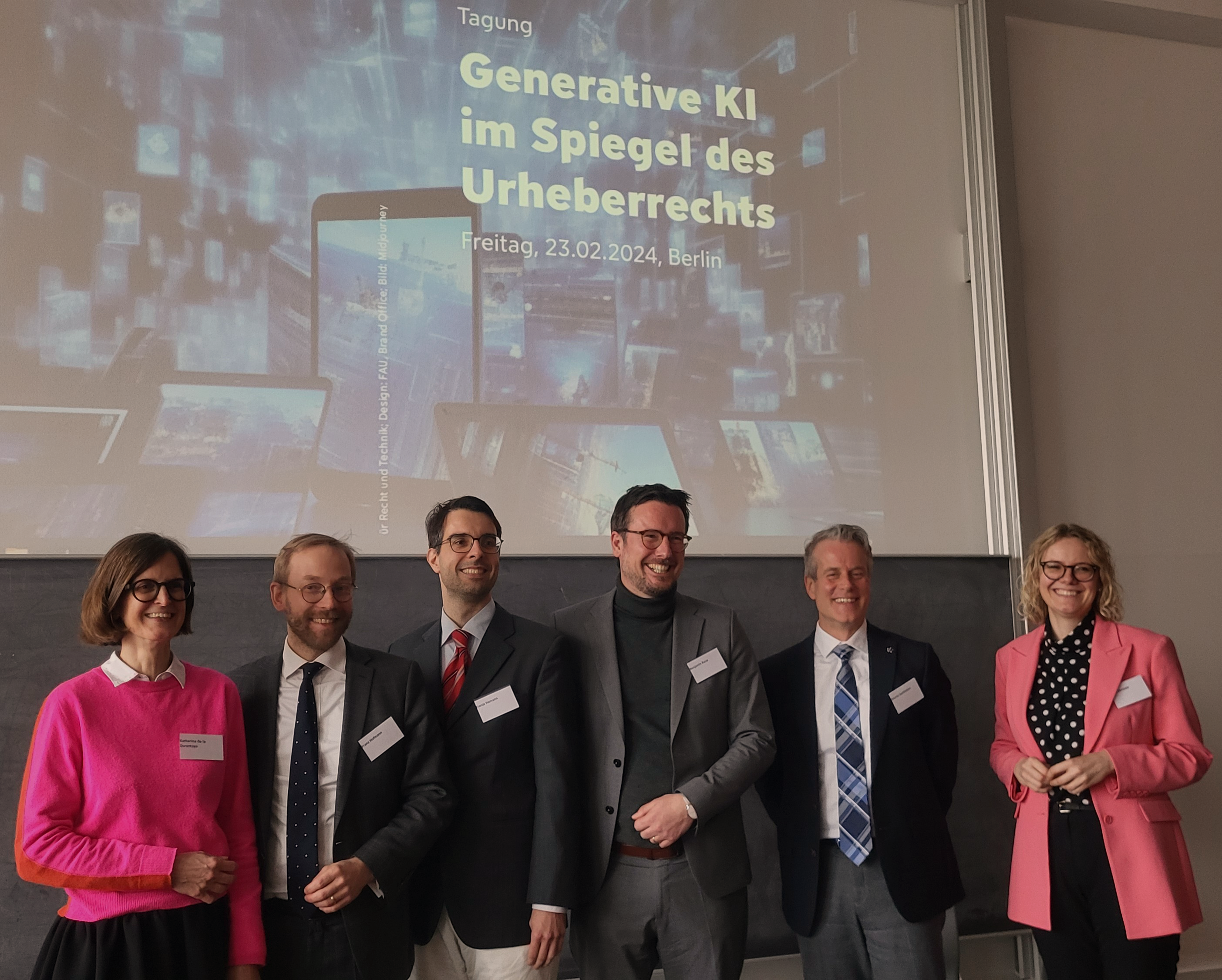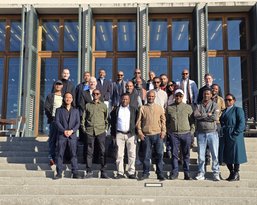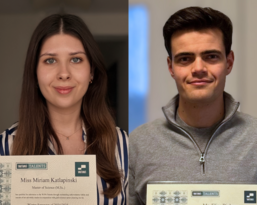![[Translate to English:] News_Hamann_IT_Rechtspreis](/fileadmin/_processed_/f/1/csm_IT-Rechtspreis_c26746d2d5.jpg)
Generative AI in copyright law: EBS Professor Hanjo Hamann speaks at conference
EBS Law School Professor Hanjo Hamann will give a lecture on the topic of the reservation of rights for AI training and the legal transaction theory of machine communication.

At the recent conference "Generative AI in the Mirror of Copyright Law", which took place on Friday 23 February 2020 in Berlin and was hosted by EBS Unniversität and other renowned organisers such as the Freie Universität Berlin, FAU Erlangen-Nürnberg and the Universität of Trier, a wide range of topics related to artificial intelligence (AI), a technology that is becoming increasingly important worldwide, were discussed.
Despite the obvious weaknesses of current autonomous image or text generators, the disruptive potential of generative AI is undisputed. Appropriate regulation is currently the subject of intense national and international debate.
This interdisciplinary event analysed systems such as ChatGPT, Stable Diffusion and Midjourney from a copyright perspective. Discussion covered issues of interpretation in current copyright law and explored the potential impact of "creativity at your fingertips" on the copyright system as a whole.
One of the highlights of the conference was a presentation by Professor Hanjo Hamann of EBS Law School. Entitled "Reservation of Rights for AI Training and the Legal Doctrine of Machine Communication", Professor Hamann explored the possibility for creators, including scientists, authors and visual artists, to prevent their works from being used on the internet to train artificial intelligence.
In his presentation, Professor Hamann argued that although the legal possibility of objecting to the use of works for AI training exists, it is hardly feasible due to a lack of legislative understanding of machine text processing and the technical complexity of the objection. He also highlighted that currently only rights holders with significant technical and legal resources can effectively object, which particularly favours large publishers, platforms and data collectors.
Professor Hamann's presentation provided important insights into the challenges and ambiguities facing creators in the age of artificial intelligence, and encouraged further discussion on the development of policies and protections for intellectual property in this changing landscape.







